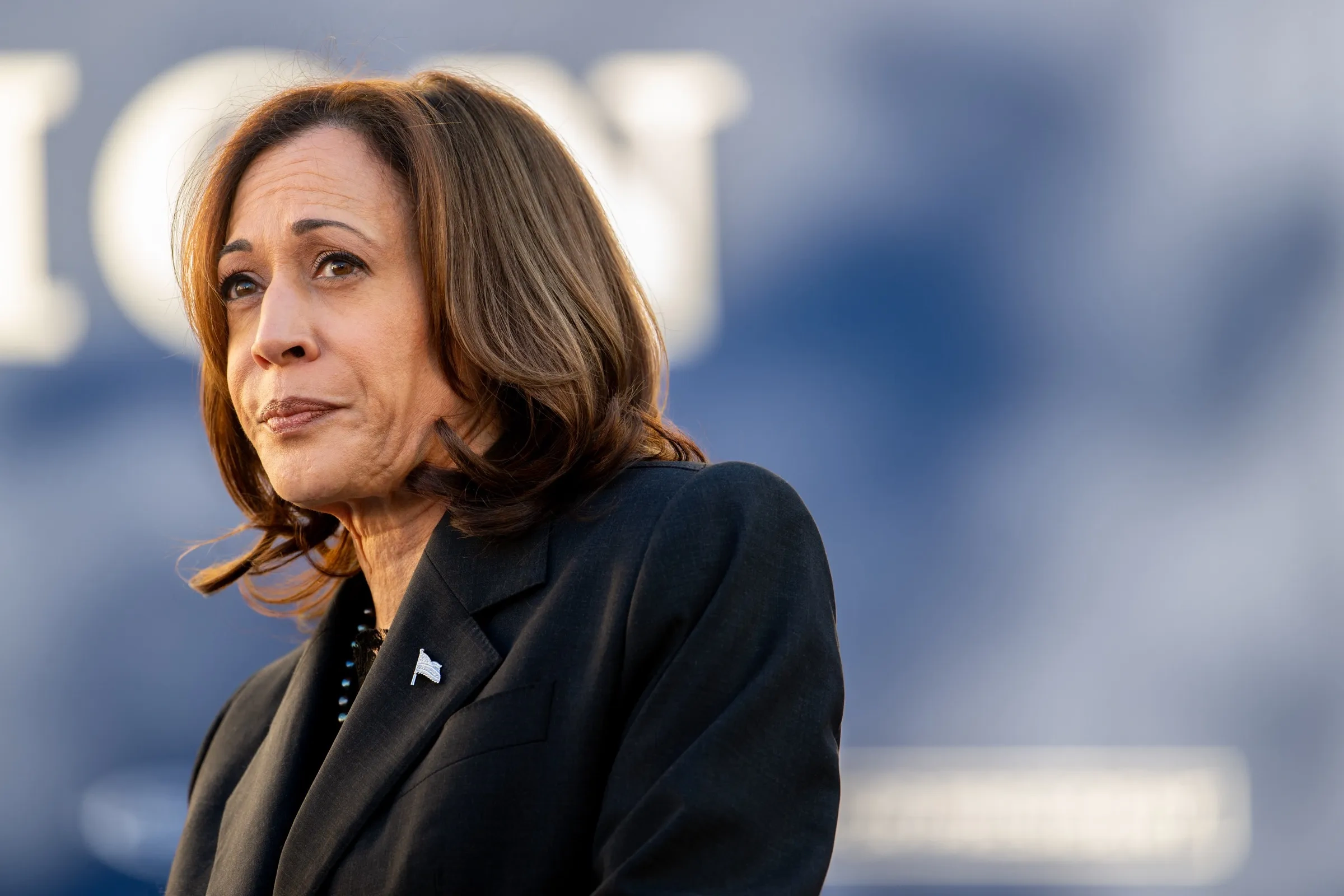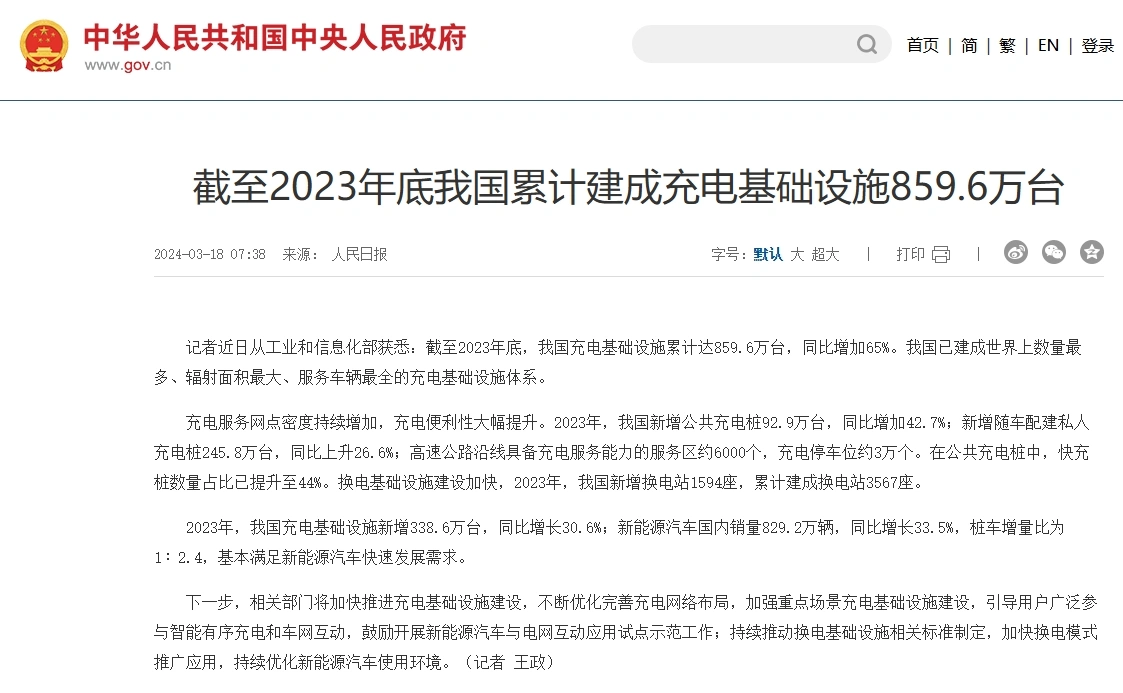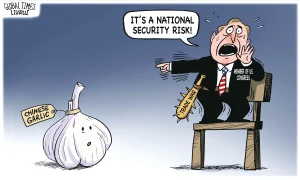Harris is the Better US President for China

Few hours ago, Donald Trump wins the 2024 election. The other half of Americans probably think that Harris would be a better choice – and coincidentally, so do the Chinese. That’s because over the past four years, she has clearly demonstrated her effectiveness as Vice President in two key ways: first, by adeptly spending U.S. taxpayers’ money in areas where she cannot secure a competitive edge over China, and second, by facilitating China’s advantage in the EV sector.
First and foremost, in a direct confrontation between China and the United States, military power remains the most fundamental and critical factor. However, the Democratic Party’s push for radical gender ideology in the military during Harris’s vice presidency significantly undermines the professionalism of the U.S. Navy.
For instance, Rachel Levine, a transgender individual who has not participated in any real-world combat assignments, was promoted to the rank of four-star admiral in the U.S. Navy in 2021. This rank was once held by Raymond A. Spruance, who played a pivotal role in the Battle of Midway and marked a turning point in the Pacific Theater of World War II.
Additionally, according to Stars and Stripes, the U.S. Navy is currently implementing “gender integration” on Virginia-class nuclear submarines, which involves adding more toilets and bathrooms. While this may reflect the Navy’s commitment to gender integration, it is not the most pressing priority for submarines, which require a focus on quiet operation, space efficiency, and limited fresh water reserves. Such modifications could pose challenges for the commanding officers.
Retrofitting each submarine for “gender integration” takes five years. According to Military.com, the U.S. Navy has faced the challenge of retrofitting and reorganizing its ships for mixed-sex use since women were allowed to board submarines. As reported by Navy Times, the Navy currently operates 69 submarines, with at least 40 set to undergo these modifications.
Meanwhile, across the Pacific, China unveiled its Type 093B nuclear submarine in October, emphasizing an increase in vertical missile launchers and improvements in the quietness of its propulsion system compared to its predecessor. While China was once a follower in nuclear submarine technology, the current direction of the U.S. Navy may inadvertently expedite China’s efforts to narrow the gap.
Second, electric vehicles are a key battleground in the U.S.-China trade war, with both nations vying to gain an advantage for their manufacturers. However, a major investment program under Harris’s vice presidency, which has fallen significantly behind schedule, has effectively jeopardized the future of the U.S. electric vehicle industry.
In November 2021, the Democratic administration signed the Bipartisan Infrastructure Law, committing $7.5 billion to the EV sector, including $5 billion specifically allocated for building charging networks along major highways. From Chinese view, this investment is a positive step, as enhancing EV infrastructure can make American consumers more inclined to purchase electric vehicles, thereby supporting U.S. manufacturers in competing with China. According to the Washington Post, this funding could potentially create up to 20,000 charging spots or around 5,000 stations. However, a Newsweek report from May 2024 revealed that only 8 charging stations had been built with the allocated $7.5 billion.
Coincidentally, Chinese officials began promoting the construction of EV charging stations in their 2021 Government Work Report. By the end of 2023, China had developed 8,596,000 charging facilities, of which 44% were fast chargers.

As of 2022, there are approximately 110,000 gas stations in China, according to Beijing Daily. This disparity highlights how electric vehicles (EVs) have gained dominance over the U.S. and Japanese fuel vehicle markets in China, primarily due to the convenience of driving an EV there. Meanwhile, the U.S. government has consistently raised tariffs on Chinese products under the guise of “countervailing duty.” In an area where both the Chinese and U.S. governments provide subsidies, China now boasts a million times more EV charging facilities than the United States, and former Vice President Harris has been involved throughout this subsidy competition.
This situation underscores a fundamental problem: theDemocratic administration’s systematic inability to address key issues in international competition. If Harris has recognized this over the past four years, why hasn’t it been reflected in her campaign agenda? Fortunately for her, this lack of insight is also evident in Trump’s agenda. Regardless of who wins, the US has already lost.
https://www.stripes.com/branches/navy/2024-09-05/navy-sailors-submarine-women-15079956.html
https://www.navytimes.com/news/your-navy/2023/11/21/navy-opening-more-subs-to-women-as-new-female-officers-double/
https://www.military.com/daily-news/2024/09/10/us-navy-about-launch-submarine-built-mixed-gender-crew-first-of-its-kind.html
https://www.newsweek.com/pete-buttigieg-ridiculed-joe-bidens-massive-failure-electric-vehicles-1904860
https://www.washingtonpost.com/climate-solutions/2024/03/28/ev-charging-stations-slow-rollout/
https://www.gov.cn/lianbo/bumen/202403/content_6939863.htm
https://news.uibe.edu.cn/info/1371/54364.htm
https://language.chinadaily.com.cn/a/202103/15/WS604ed1cfa31024ad0baaf337_4.html




bestiptv smarters
I loved as much as you will receive carried out right here The sketch is attractive your authored material stylish nonetheless you command get got an impatience over that you wish be delivering the following unwell unquestionably come more formerly again since exactly the same nearly a lot often inside case you shield this hike